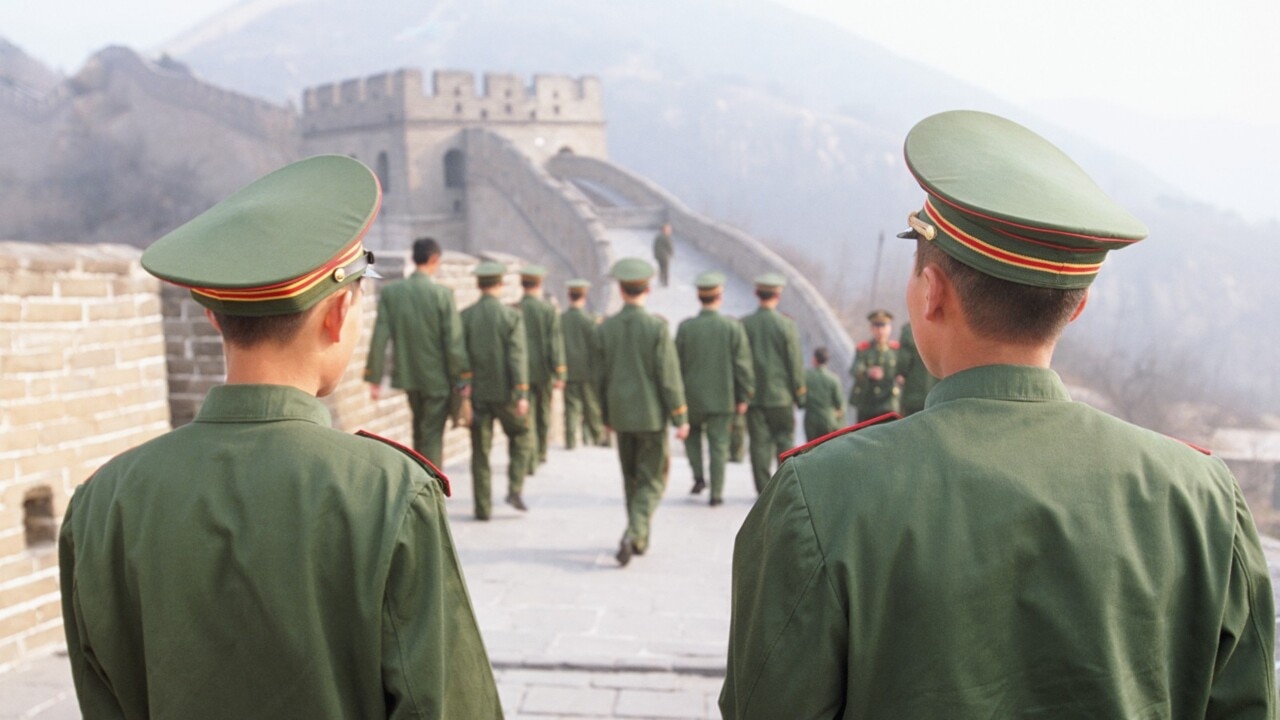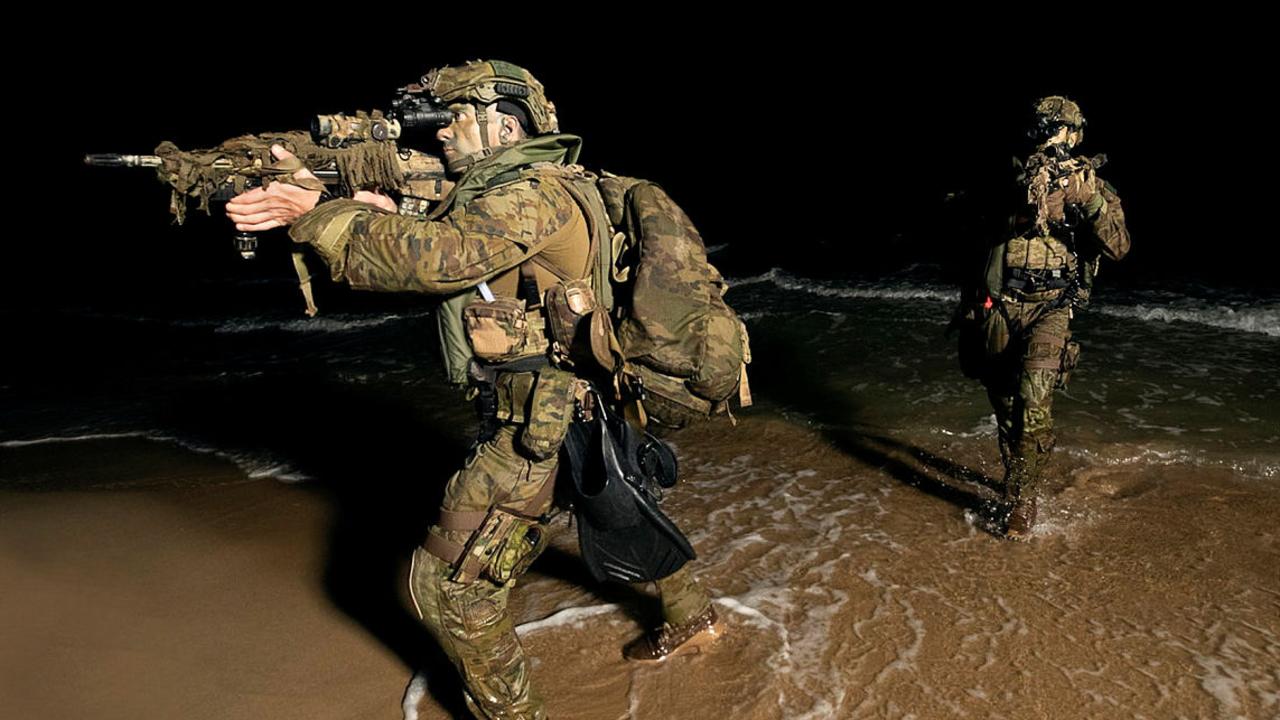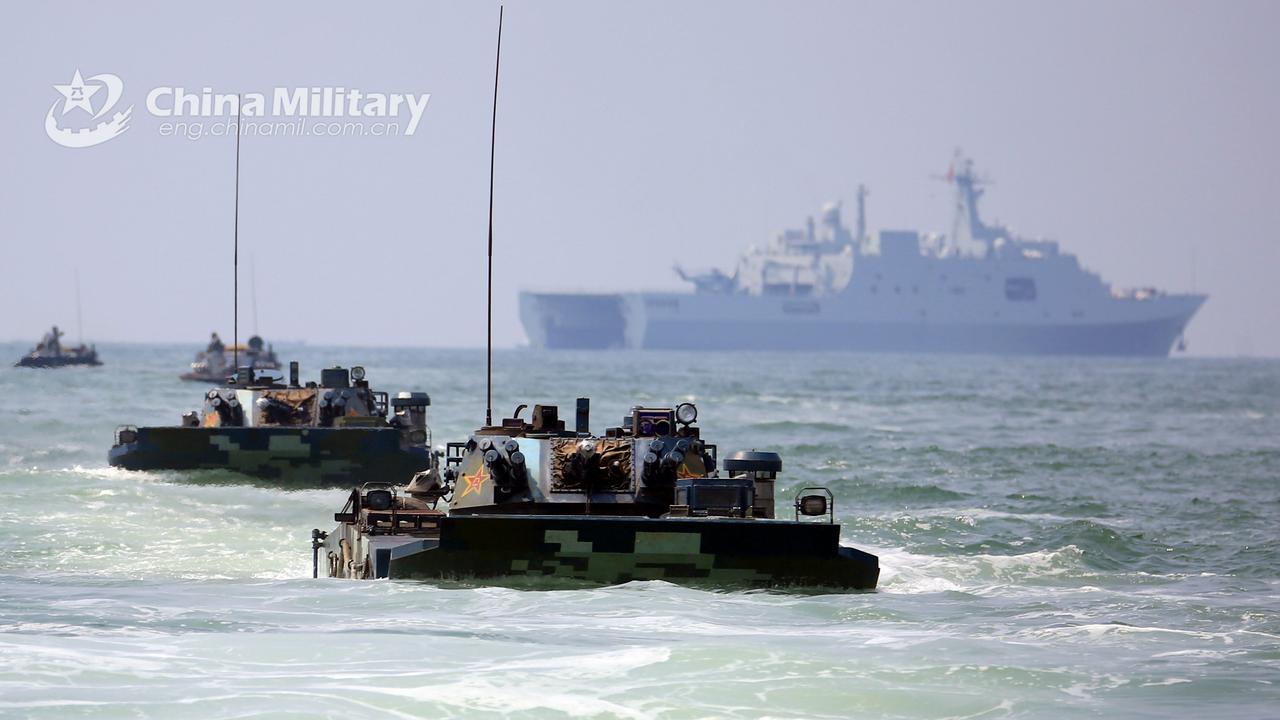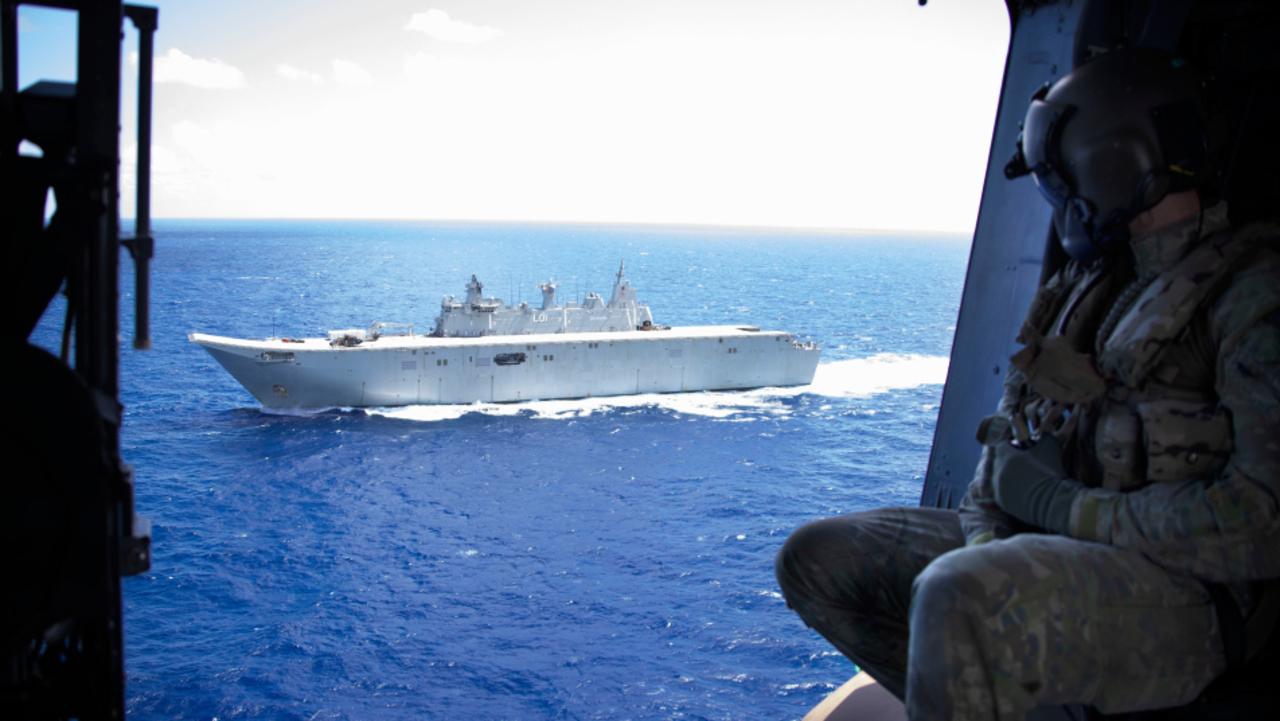Scott Morrison unveils $747 million defence facilities upgrade as China brands Australia ‘sick’
China has branded as Australia “sick” as the PM prepares to unveil a nearly $750 million upgrade to Australia’s defence facilities.

The Prime Minister is set to unveil a nearly three-quarter-of-a-billion-dollar upgrade to Australia’s top-end defence facilities, days after his Defence Minister hinted at the possibility of war with China.
Scott Morrison will announce the massive cash injection to boost Australian Defence Force training facilities in the Northern Territory today, The Daily Telegraph first reported, with a focus on better integrating Australian troops’ training with key allies including the US.
According to the newspaper, the new investment will boost ADF training facilities, providing for upgraded firing ranges, weapons training simulation, combat and urban shooting ranges, aviation facilities, support facilities and accommodation.
The announcement comes days after Defence Minister Peter Dutton said war with China over Taiwan should not be “discounted”, and Home Affairs Secretary Michael Pezzullo used his Anzac Day message to warn that the “drums of war” were growing louder.
“Our focus is on pursuing peace, stability and a free and open Indo-Pacific, with a world order that favours freedom,” Mr Morrison told newspaper.
“Working with the United States, our allies and Indo-Pacific neighbours, we will continue advance Australia’s interests by investing in the Australian Defence Force, particularly across Northern Australia.”
The projects, which are expected to be completed by 2026, will allow Australian troops to conduct simulated and reality-based war games and military training exercises with major allies, especially the US, according to the report.

Backlash to ‘drums of war’ statement
Mr Pezzullo’s message, which was released on Sunday but began to make headlines on Tuesday, sparked criticism from Labor and the Greens.
Former Labor leader Bill Shorten described it as “pretty hyperexcited language” and said he was “not sure our senior public servants should be using that language because I’m not sure what that actually helps except to cause more anxiety”.
West Australian Labor Premier Mark McGowan also said public figures, “elected or otherwise”, should “tone it down”. “What good does that do, saying things like that? It’s totally unnecessary,” he said in Perth.
“There may be elements in the community who cheer but it’s in no one’s interest, that sort of language. Diplomacy should be conducted diplomatically by people in elected office and also public servants. I suggest to them they don’t say things like that anymore.”
Greens leader Adam Bandt said Mr Dutton’s “aggressive posturing against China is putting us all at risk”. “We cannot be silent on the human rights abuses of any government, including the Chinese government, but that doesn’t mean building up to a war,” Mr Bandt wrote on Twitter.
“War is the worst possible outcome to resolve geopolitical tension and end human rights abuses. Dutton’s just got into the job, and clearly wants to throw his weight around – but this shows why he was a terrible pick for Defence Minister. Instead of cool and strategic heads, we’ve got people willing to inflame tensions.”
But Home Affairs Minister Karen Andrews said on Tuesday she had approved of the wording of Mr Pezzullo’s “strong opinion piece”.
“He is absolutely at liberty to prepare such a speech, a document, and to have that published,” she told the Nine Network. “The overarching message from government is that we need to be alert but not alarmed.”
Speaking on Sky News on Tuesday, Nationals Senator Matt Canavan said the “Australian people need a wake up call”.
“We must be ready for the worst outcome,” he said.

China spokesman brands Australia ‘sick’
China’s Foreign Ministry on Tuesday hit back, saying Beijing was not responsible for the current tensions with Canberra.
Foreign Ministry spokesman Wang Wenbin told reporters the current problems were rooted in Australia’s “interference into China’s internal affairs, its inflicting damages on China’s interests, and it trade discrimination against China”, according to an account of his remarks in the state-run Global Times.
“Wang noted that Australia has described China as an ‘authoritarian’ country, and had taken the lead in prohibiting Chinese enterprises from participating in Australia’s 5G network rollout on groundless reasons and repeatedly blocking Chinese enterprises to invest in Australia under the guise of its ‘national security’,” the Global Times said in its report.
Mr Wang was quoted as saying, “Australia is sick, however it is asking others to take medicine, which will not solve the problem at all.”
A day earlier, Mr Wang responded to Mr Dutton’s comments on Sunday regarding the possibility of war over Taiwan, saying the “One China principle” was an “important part of China-Australia relations”.
“The Taiwan question is China’s internal affair that bears on China’s core interests, and brooks no external interference,” he told reporters.
“China must and will be reunified. We are willing to do our best to strive for the prospect of peaceful reunification, but we will never leave any space for “Taiwan independence” separatist activities in any form.”
He added, “It is hoped that the Australian side will fully recognise that the Taiwan question is highly sensitive, abide by the one-China principle, be prudent in its words and deeds, avoid sending any wrong signals to the ‘Taiwan independence’ separatist forces, and act in ways beneficial to peace and stability in the Taiwan Strait and conducive to China-Australian relations.”

Why Dutton, Pezzullo are speaking out
Michael Shoebridge, director of defence, strategy and national security at the Australian Strategic Policy Institute, said the focus should be on “the root cause of the issue”, rather than the remarks from Mr Dutton and Mr Pezzullo.
“The reason discussion about (the possibility of) war with China over Taiwan is happening is because of the increasing military tensions that China is providing in and around Taiwan,” he told news.com.au.
Mr Shoebridge said the “intensity, frequency and number” of incursions by People’s Liberation Army (PLA) aircraft over Taiwanese airspace in 2021 was “multiple times greater” than over the last four years.
“We should focus on the actions of the Chinese government and Chinese military more than the words of people noticing those actions,” he said.
Mr Shoebridge disagreed with some analysts and public figures who say war with China may be inevitable. “I don’t think so – I think we make it inevitable by licensing China’s actions against Taiwan,” he said.
“Many countries have a stake in China not using military force against Taiwan. Many voices need to deter China by making Beijing understand the costs of acting militarily against Taiwan are larger than the Chinese government calculates.”
Mr Dutton’s public comments were a way of “putting the Taiwan situation on the agenda and raising the debate” to deter China from using force, he added.
He said Beijing was “starting to notice” that the issue of Taiwan was being raised at a growing number of diplomatic meetings, “not just behind closed doors but in public communiques after”.
Taiwan was on the agenda at the Alaska meeting between the US and China – where Chinese officials openly mocked President Joe Biden’s Secretary of State Tony Blinken – the recent US-Japan talks, and in the virtual leaders meeting of the Quad, made up of the US, Japan, Australia and India.
“You can’t deter China by being silent,” he said.
China had grown “overconfident”, according to Mr Shoebridge, because it had managed to get away with “some pretty extraordinary things against international opposition and suffered not many consequences”.
“Whether that’s running concentration camps for millions of its citizens in Xinjiang or its rapid and security-heavy repression of freedoms in Hong Kong, breaking international commitments they made,” he said.

How likely is a war with China?
According to Mr Shoebridge, it is “absolutely credible that China could make a military calculation to use force against Taiwan”.
Reunification with the self-governing island democracy is not only the biggest piece of unfinished business for the Chinese Communist Party, but also would represent a major strategic boost.
“It matters because it’s a piece of strategic geography and if China owns it, it can project military force into the wider region much more easily,” Mr Shoebridge said. “In opposition to that, when it’s not in mainland ownership it’s a big constraint on PLA power projection.”
In addition, Taiwan is a centre of hi-tech excellence in the field of semiconductors, which is currently an “enormous gap” for China.
“Transferring that technological capacity into the Chinese economy would close an enormous strategic technological gap China has and inflict enormous damage on the rest of us,” he said.
Then there is the simple fact that Taiwan is a “vibrant democracy of 23 million people in the Indo-Pacific”. “Well, if that doesn’t matter to others – as a democracy of 25 million in the Indo-Pacific, we’re making a fundamental error,” Mr Shoebridge said.
He added, “The focus should be on credible deterrence – not on who would win a war.”




